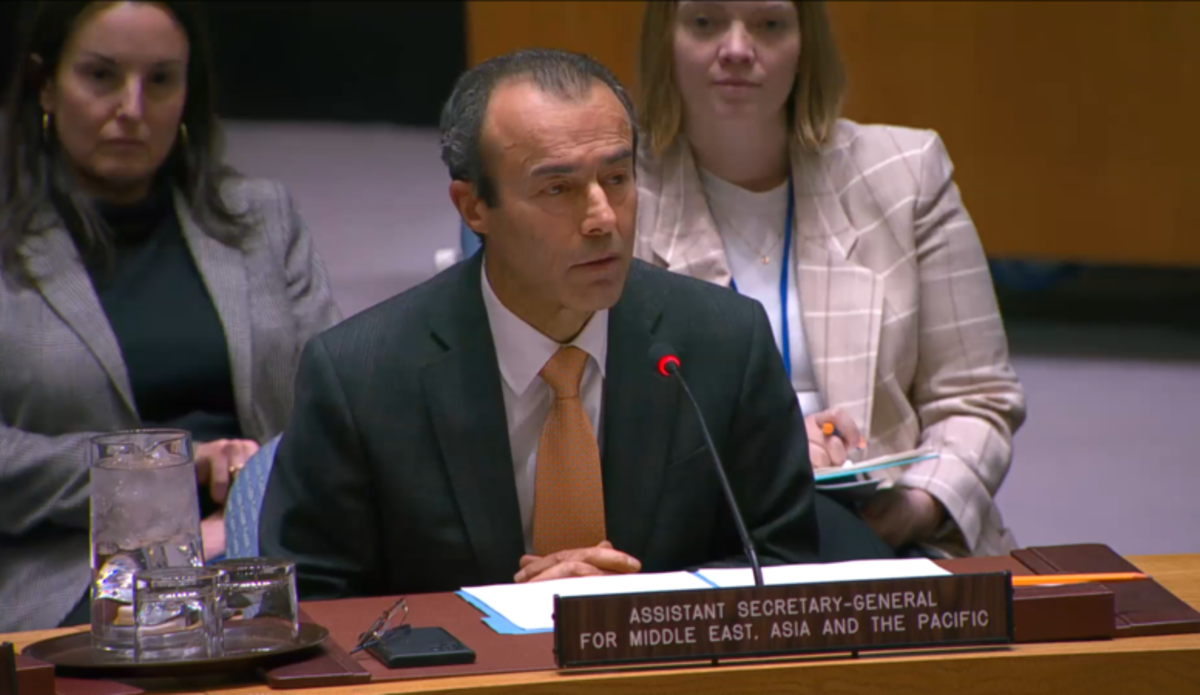ASSISTANT SECRETARY-GENERAL KHALED KHIARI
BRIEFING TO THE SECURITY COUNCIL ON
NON-PROLIFERATION/DEMOCRATIC PEOPLE'S REPUBLIC OF KOREA
New York, 8 January 2025
Mr. President,
Members of the Security Council,
On 6 January at 12:00 PM local time, the Democratic People’s Republic of Korea (DPRK) launched what it described as a new-type of intermediate-range hypersonic ballistic missile (IRBM) loaded with a hypersonic glide vehicle. According to the DPRK official statement, the missile flew in line with its predetermined flight trajectory at a speed amounting to 12 times the speed of sound, and landed in the open sea. While stating that the launch had no negative impact on the security of neighboring countries, the DPRK regrettably did not issue airspace or maritime safety notifications.
The statement reported that the system can “deal a serious military strike to a rival by effectively breaking any of its dense defensive barriers”. Hypersonic glide vehicles travel at least five times the speed of sound and make evasive maneuvers, making defense measures against the weapon much more difficult.
Mr. President,
The launch of yet another ballistic missile by the DPRK is of serious concern. This was the fourth launch of an intermediate-range ballistic missile (IRBM) since the beginning of 2024. In this same time period, the DPRK has also launched one intercontinental ballistic missile (ICBM) and multiple short-range ballistic missiles (SRBM). It also attempted to launch a military reconnaissance satellite. In addition, the display of an undeclared enrichment facility in Kangson and the ongoing commissioning of the light water reactor at Yongbyon are clear violation of relevant Security Council resolutions, as are the continued launches of missiles using ballistic missile technology.
The DPRK has been actively working towards acquiring new military capabilities in line with its current five-year military development plan, which is entering its final year in 2025. The plan has called for the development of what the DPRK calls tactical nuclear weapons, “super-large” nuclear warheads, various intermediate- and long-range ballistic missile capabilities, military reconnaissance satellites and a nuclear submarine, among others. In late December, at its end-of-year plenary session, the DPRK Government emphasized that 2025 should see the successful completion of the five-year plan.
Mr. President,
The DPRK’s persistent pursuit of its nuclear and ballistic missile programmes continues to undermine the global nuclear disarmament and non-proliferation regime. It also escalates tensions and contributes to the further isolation of the DPRK from the international community. We continue our calls to the DPRK to fully comply with its international obligations.
Mr. President,
As we enter 2025 amidst growing challenges to global peace and security, it is imperative to ease tensions on the Korean Peninsula. The Secretary-General has consistently called for de-escalation and the urgent resumption of talks. Diplomatic engagement remains the only pathway to sustainable peace and the complete and verifiable denuclearization of the Korean Peninsula. In this respect, we welcome offers to engage in dialogue with the DPRK without preconditions.
The Council must also remain attentive to the humanitarian situation in the DPRK. We reiterate the call on the DPRK to expedite the return of the UN Country Team and the international community to strengthen support for its people and advance the 2030 Agenda.
Thank you.

